Last Updated on January 5, 2022 by
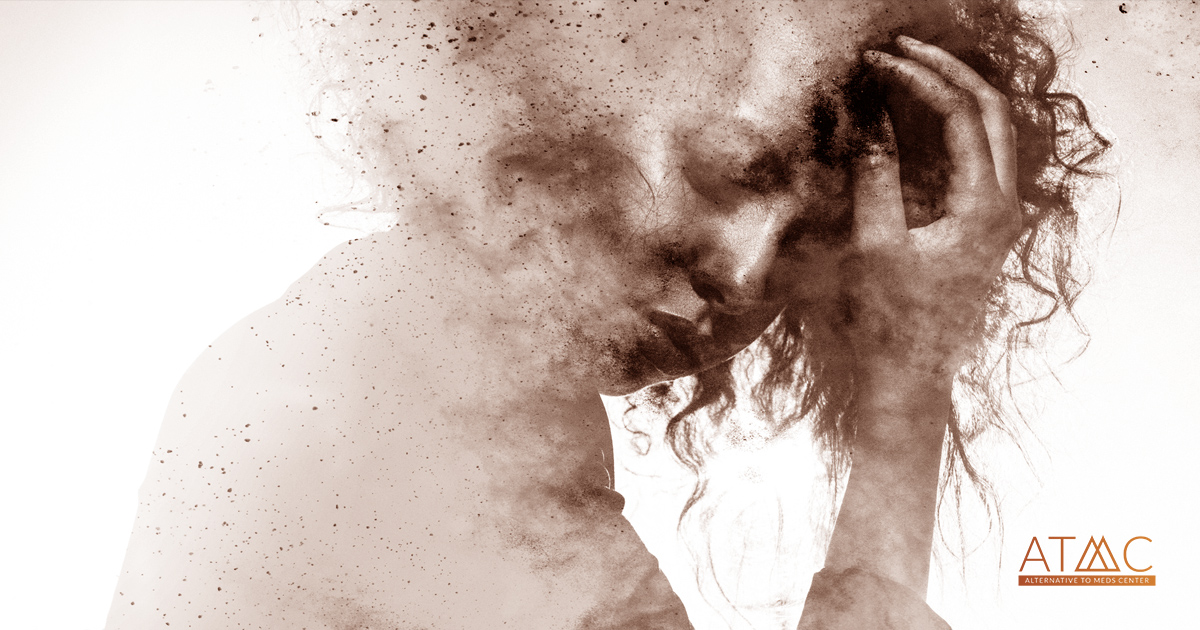
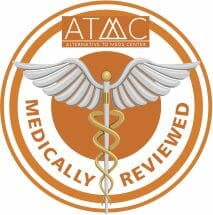
Alternative to Meds Editorial Team
Written by Diane Ridaeus Published June 15, 2021
Medically Reviewed by Dr Samuel Lee MD
Table of Contents:
Last Updated on January 5, 2022 by


Alternative to Meds Editorial Team
Written by Diane Ridaeus Published June 15, 2021
Medically Reviewed by Dr Samuel Lee MD
 What Is TD Schizophrenia?
What Is TD Schizophrenia?Before we dive into the details of this condition, it’s important to understand what it is in broad terms. Tardive Psychosis, also referred to as Tardive Dyskinesia or TD Schizophrenia, is a condition that can occur in a mental health patient who has been on antipsychotics for long periods of time. This effect does not happen right away but has been theorized to appear after the patient has been taking the medication for a long while. Many doctors and scientists see these effects as a sign that the medication is not working and that the mental health condition is resurfacing. However, there is a growing amount of work saying that perhaps this is not the case, but rather the medication itself is causing the condition. Many people find this difficult to discern, as tardive psychosis often looks very similar to the symptoms of schizophrenia itself. However, rather than do research on the topic, many scientists have passed over this possibility and simply prescribed higher dosages or other medications to mitigate the symptoms.
The symptoms of Tardive Psychosis or Tardive Dyskinesia vary a little bit from person to person but are characterized by a twisting movement of the face or other parts of the body. These twists can be fast or slow, sudden or gradual. These symptoms seem to be an unfortunate side effect of antipsychotic medications that are commonly prescribed for schizophrenia. However, patients who are diagnosed with bipolar disorder, psychosis, and extreme cases of anxiety or depression may also be prescribed antipsychotic medication. The symptoms of this condition may be treatable or manageable if caught and cared for early. Unfortunately, it is possible for Tardive Psychosis symptoms to be ongoing and permanent, even after a patient has discontinued using the antipsychotic medication.
To understand how and why Tardive Psychosis occurs, we must first understand what antipsychotic medications are designed to do to the human brain. Our brains have hormone receptors that are designed to conduct our brain chemicals to the right areas and ensure that they are absorbed. Our four primary brain chemicals2 are Serotonin, Glutamate, Dopamine, and Norepinephrine. When someone experiences a mental illness, it often means that there is a disconnect on the path for one or several of these hormones to get where they need to go. Antipsychotic drugs are designed specifically to block the majority of Dopamine receptors in the brain. This process means that less dopamine is being absorbed, and the person becomes more lethargic but has fewer psychotic episodes.
In general, dopamine is regarded as a good thing. For the most part, this is true. Dopamine targets our brain’s reward and pleasure centers and helps our brains process things like emotions and behavior. Too little dopamine is not good and leads to lethargy, and over time it can lead to diseases like Parkinson’s or Parkinson’s-like symptoms. However, an excess of dopamine is not good for the brain either. An excess of dopamine often creates psychotic symptoms and is similar to the effects of amphetamines such as Adderall or Ritalin. This is important to keep in mind in order to understand how Tardive Psychosis works.
It has been theorized that the psychosis associated with long-term antipsychotic drugs is because of the dopamine levels in the brain. Antipsychotic-induced dopamine receptor supersensitivity seems to occur when the antipsychotics block Dopamine receptors in the brain. However, when this happens, dopamine continues to be created; it is just not translated to the appropriate receptors (because they are blocked). This creates an excess of dopamine with nowhere to go, and the brain begins to normalize a high level of dopamine. However, this makes the brain’s receptors ultra-sensitive to dopamine3, and the high availability levels create a psychosis along the lines of an amphetamine. Though supersensitivity psychosis is the absolute opposite of what patients dealing with schizophrenia need for their bodies, it appears that these medications seem to cause it to happen anyway. This begs the question, are medications really helping in these cases?
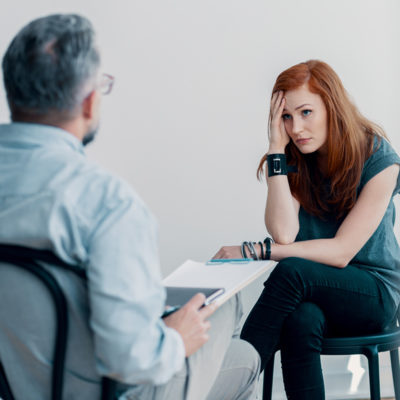
The following can lead to an increased risk of experiencing Tardive Psychosis:
It is unfortunate, but the risk of this disease is fairly common with this class of antipsychotic. Many people are prescribed such medications, but they may ultimately do more harm than good.
It may feel like Tardive Dyskinesia is a major enough side effect for a single medication, but in reality, it does not stand alone. There are other invasive and debilitating side effects that come with taking antipsychotic medications. Though not every patient will experience all of these, the risk of these side effects is ever-present, and each should be strongly considered before beginning to take antipsychotics.
Side effects include:
Though Tardive Dyskinesia is certainly scary and can pose a significant threat to a person’s quality of life, many of these and other side effects can be equally harmful and may offset any temporary the individual feels from their mental illness symptoms.
Though Western medicine would have most people think otherwise, there are alternative approaches to mental health that do not require medications. For those dealing with Tardive Psychosis or Schizophrenia, it is entirely possible that an antipsychotic medication is worsening symptoms and making it difficult to function. Some impactful 1960s research4 on the topic suggested that, though medications can help in short-term situations, they ultimately lead to more symptom relapses and more difficulty functioning over time. With so much at stake here, it is worth considering the other options available to those suffering from schizophrenia and mental illness. Though a short-term immediate solution is appealing, it can be beneficial to consider what is best for one’s health in the long term, even if it means enduring symptoms for a little while longer.
If a patient decides to explore alternative or holistic therapies for mental health, one of the first steps is tapering off of their medication. This may seem scary or intimidating, but with proper supervision and help, this process is safe and can be highly beneficial. While medications can be the best option in a crisis situation, many times, they are not necessary or helpful long term5. At Alternative To Meds Center, we taper medication for our patients in many ways. This process is gradual and may involve cutting pills, receiving a lower dose prescription, medication suspension for best absorption length, and even using less addictive medications to bridge the gap between being on your medication and being medication free.
What many doctors or medical practitioners don’t take the time to do is understand the underlying issues of a person’s mental health problems. Because medications can provide a “quick fix” for many mental illnesses and problems, there is little incentive to do research on the personal and molecular level to understand the patient’s chemistry and what may be causing their symptoms.
Many patients with psychotic episodes have high levels of toxic materials in their bodies. These materials are highly likely to be the root cause of the schizophrenic or psychotic episode, a fact which would not have been discovered while on antipsychotic medications.
All people who experience mental illness have something that is unbalanced within their neurochemistry. Whether this is genetic or caused by other habits or lifestyle choices is determined on an individual level. In many cases, this neurochemistry is something that can be brought back into balance. If a patient has been on antipsychotic medications for an extended period of time, the process to rebalance their neurochemistry may take more time. This rebalancing is achieved through natural supplements and medicines and with strict medical supervision. During this time, counseling, yoga, equine therapy, massage, art therapy, and strict nutritional guidance can also help to rebalance the body and minimize symptoms. The goal is to get the brain back to a neutral and healthy state rather than trying to mask the underlying issues with medication, alcohol, marijuana, or other controlled substances.
There is no one answer to this question because, for every individual who experiences Tardive Dyskinesia, the answer will be different. As with any mental health condition, there is no singular experience, and therefore there cannot be a singular course of treatment that works for everyone. For some people, medication is the only way that they can keep themselves alive in a time of crisis, and that is okay. However, for long-term solutions, natural and holistic remedies are generally more effective. By targeting the entire problem rather than one symptom or manifestation of it, it is possible to reduce the condition’s power on a permanent basis and look toward long-term healing.
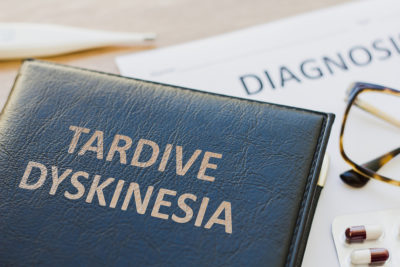
If you feel like it’s time to free yourself from the constraints of a mental health medication, contact the Alternative To Meds Center. We provide holistic healing and ways to fully detach yourself from your medication so that you may begin to heal from the inside out.
Sources:
- https://www.mind.org.uk/information-support/drugs-and-treatments/antipsychotics/side-effects/
- https://share.upmc.com/2016/09/about-brain-chemicals/
- https://www.ncbi.nlm.nih.gov/pmc/articles/PMC5353025/
- http://psychrights.org/research/digest/nlps/The-Case-Against-AntipsychoticsWhitaker2016.pdf
- https://www.healthline.com/health/depression/benefits-of-getting-off-antidepressants#physical-benefits
- https://en.wikipedia.org/wiki/Dopamine_supersensitivity_psychosis#:~:text=Dopamine%20supersensitivity%20may%20be%20caused,release%20of%20the%20neurotransmitter%20dopamine
- https://share.upmc.com/2016/09/about-brain-chemicals/
- https://emedicine.medscape.com/article/1151826-overview
- http://psychrights.org/research/digest/nlps/The-Case-Against-AntipsychoticsWhitaker2016.pdf
- https://www.ncbi.nlm.nih.gov/pmc/articles/PMC5353025/
- https://www.mind.org.uk/information-support/types-of-mental-health-problems/tardive-dyskinesia-td/causes-risks/
- https://www.mind.org.uk/information-support/types-of-mental-health-problems/tardive-dyskinesia-td/about-tardive-dyskinesia/
- https://www.mind.org.uk/information-support/drugs-and-treatments/antipsychotics/side-effects/#:~:text=Tardive%20psychosis%20is%20a%20term
- https://en.wikipedia.org/wiki/Tardive_psychosis

Dr. Samuel Lee is a board-certified psychiatrist, specializing in a spiritually-based mental health discipline and integrative approaches. He graduated with an MD at Loma Linda University School of Medicine and did a residency in psychiatry at Cedars-Sinai Medical Center and University of Washington School of Medicine in Seattle. He has also been an inpatient adult psychiatrist at Kaweah Delta Mental Health Hospital and the primary attending geriatric psychiatrist at the Auerbach Inpatient Psychiatric Jewish Home Hospital. In addition, he served as the general adult outpatient psychiatrist at Kaiser Permanente. He is board-certified in psychiatry and neurology and has a B.A. Magna Cum Laude in Religion from Pacific Union College. His specialty is in natural healing techniques that promote the body’s innate ability to heal itself.
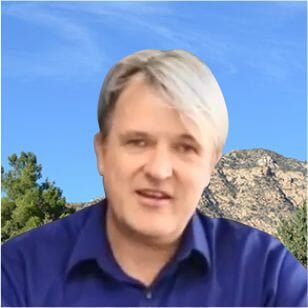
Lyle Murphy is the founder of the Alternative to Meds Center, a licensed residential program that helps people overcome dependence on psychiatric medication and addiction issues using holistic and psychotherapeutic methods.
Can you imagine being free from medications, addictive drugs, and alcohol? This is our goal and we are proving it is possible every day!
Read All StoriesView All Videos